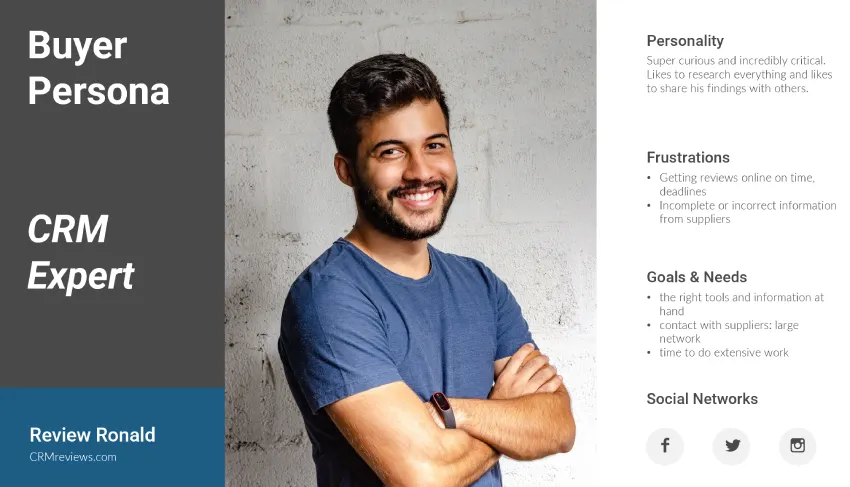A good quotation is essential for winning a contract. A quotation is the final piece of a sales funnel and provides the final enticement to the prospect. All the e-mails, social media posts, blog posts, sales calls and other marketing and sales efforts have led to this moment; you get to issue a quotation. So it is not wrong to pay a lot of attention to this process and design your quotations in the best possible way to increase your scoring chances. With these quotation tips, you will increase your scoring chances right away in 2024!
1. The best time to make an offer; is when you have a high probability of getting the order ⌛
Perhaps the most important offer tip:
In many organizations, quotations are issued too quickly. Making a quotation costs money, even if you do it smartly and efficiently. So wait before issuing a quotation until you have a good idea of the project and the chances of success of the sales effort.

It is easy for many prospects to request a quote but this is not always necessarily the information they need. Perhaps at that point in the customer journey, the prospect would also be helped by an email or phone call giving some bandwidth.
Quotes are often requested when people are just looking for a feel for the type of product or service and what it will cost approximately.
So it can save you a lot of time by issuing a quotation only when you have some more concrete indications that there is interest in your product/service, there is already an idea about the prices involved and there is also already a certain conviction that the product/service is needed.
2. Answering questions the prospect has in mind
Quotations are still often drafted as a businesslike, sometimes lifeless document. This does not benefit readability and can be an unpleasant interruption of a pleasant preliminary process. By setting up a quotation as an extension of the previous sales process, you can increase the scoring rate. One way to do this is to draft sharp, customer-friendly texts.
A good tip for quotation titles
One form that works well for this is answering questions. By using titles in your quotes that ask or are based on a question, you make the document enjoyable to read. An example of titles from a quotation from a consultancy club:
‘What does your advisory path look like?‘ Instead of ‘Advisory path‘
‘What is the investment required?’ Instead of ‘Cost overview‘
3. Quotation tip on texts; active language use
Following on from the previous section; use active language. Try to avoid words like shall and become. Often ‘delaying’ sentences are used in business documents that are correct in content but slow the reader down. This does not improve readability. Of course, you do want your quotation to be read through with a pleasant feeling! You can achieve this by using more active language in the documents.
The trick is to find a balance between active language and more experiential texts. Again, you don’t want to take the soul out of the quotation. Some examples of more active language for a quotation for a consultancy club:
We will go through your current processes together instead of your current processes will be gone through
Your process will take 4 weeks with an interim evaluation after 2 weeks instead of your process will take two weeks and after 2 weeks we will evaluate together.
4. Use software for slick quotations
There are very useful tools available to generate and present quotes to customers. These tools focus on saving time and streamlining the sales process. For example, they support teamwork on a quotation. But also on the use of templates and standard texts so that no time is lost in building up quotations over and over again.
On the other hand, quotation tools ensure that you can offer slick quotations that make an impact, in line with house style with the goal: higher conversion.
Some CRM systems offer certain quotation generation capabilities. Depending on the CRM system, the products/services, the number of quotations, and the size of teams, opting for a separate quotation tool can be interesting and yield a lot of return on investment.
5. Ensure a good link with CRM
One of the biggest frustrations of prospects and customers when making offers is; mistakes! You can avoid mistakes in several ways. One is to use a database that is up-to-date. By using the most recent data from your CRM database as the basis for your quotation, you can be sure that you are on the right track. Assuming CRM is up-to-date, of course!

If you can link the CRM database to your quotations, you are completely safe. That is; address and personal data are automatically loaded into a new quotation to be generated.
And; issued quotations are also displayed in the CRM system on the relation card. So every salesperson who comes into contact with the relation is aware of the most recent quotations sent to this customer. A quotation tip is also: to make sure that other interactions such as e-mails and phone calls surrounding the quotation process are also logged in the CRM system.
There are CRMs that have a quotation generation system. There are also separate quotation tools that interface with different systems such as CRM software. You can also track your KPI’s with your CRM-tool.
Some examples of CRM systems:
- SalesForce (check our SalesForce review)
- Monday CRM (check our Monday CRM review)
- ActiveCampaign (check our AC review)
6. A slick layout and house style
It is a huge disappointment if you set up a fantastic marketing machine with slick e-mails, advertisements and landing pages and then the quotation does not match it at all. So make sure your offers have a look that matches the rest of your resources and corporate identity.
Quotations with an experience
By dressing up quotations with good, relevant images, you add experience to them. You can also add things like internal links so readers can quickly jump to chapters in the document. So think about readability, appearance, and connection to the corporate identity for a seamless experience from sand to the customer!
Also nice for the experience; include a photo of the team actually working on the project for the client in question. If this team, or members of the team, have been featured earlier in the sales process, the recognisability is further enhanced. It is nice for the customer to know who will be working on the project and just nice to see the faces involved.
7. Texts without mistakes!
Errors also often creep into quotations because previously issued quotations are used as a basis. This quickly results in mistakes. Mistakes can sometimes be embarrassing. For example, this can cause you to overlook company names from the previous quotation in the new quotation. How will the prospect feel if he suddenly sees a different company name in a text block in his quotation?
It can also prevent copying outdated texts along. Texts of products or services that have changed or even no longer exist. Or, texts of terms and conditions that are no longer up-to-date.
Error reduction through document management
This can be solved by applying document management. For example, use quotation tools to create your quotations. Some of these tools help you create error-free and up-to-date quotations by managing standard text blocks from one place. You can then add these blocks to your quotation.
The marketing department or a sales manager can manage these texts. These tools can also help you automatically load the right company name at the right positions in the quotation.
8. Summarise the problem (and the solution!) ✔
A tender that looks standard and has little connection to the preliminary process has less chance of success. I am sometimes pleasantly surprised to read in the first paragraphs of a quotation how clear the task at hand is and how the supplier can help. If you feel understood as a prospect, the rest of the quotation reads a lot easier and that inspires confidence in the supplier.
By summarising the conversations that preceded the quotation in the quotation, you quickly achieve the trust effect. A short but concise summary is enough to create that handshake. State the problem/challenge or wish of the client on the one hand and the solution you as a supplier have on the other.
9. Short but complete quotations
A pitfall for making quotations is that they become too comprehensive. Prospects generally do not expect whole volumes as quotations. If a lot of underlying information is required, move this documentation to attachments. With the quotation, you make a proposal.
You have to assume that the document will also be viewed by decision-makers who generally don’t have (or don’t want to take) much time for quotations and want to see in outline the conditions and agreements. And, want to get a good feel for a potential supplier in a short time.
So make sure your quotation is short, and concise but complete. Most people always flip through to the last page, where the price is given anyway ;-).
There is no guideline about the maximum number of pages, but you can feel for yourself whether the document will be too long. Complete also means; be specific. The agreements must be clear.
An example of quote texts for a fictional website builder:
Not specific: We will create the entire website for your organization.
Specific: We create the website for your organization with a CMS and content for ten pages, as described in the appendix.
In line with this point, another important prerequisite to take into account; don’t make your quotation a mega large file so that it can’t be emailed!
10. Make follow-up part of your offer
This quotation tip is about a step in the quotation process that is forgotten and underestimated. Namely; the follow-up to your proposal. Sending a proposal can feel like a check mark, a completed task. This is not surprising; in a quotation, you formalize certain discussed wishes, agreements, and conditions. By submitting a quotation, you are one step closer to possibly winning the contract. Not for nothing are the quotation tips in this article about every aspect of a quotation; everything has to be right to increase the chance of scoring.

You can sometimes forget what the follow-up to your quotation will look like. By thinking about this well in advance, you can keep a better grip on the sales process.
One tip is: when you issue the quotation, indicate specifically when you will follow it up and in what way.
For example;
‘next Thursday I will call you around 2 pm to go over the quotation with you’.
You can even include a process description with a timeline in your quotation to make the buying process clear. In more complex consultancy processes, for example, this can be a good tip to professionalize your proposal.

Consider a process description such as:
- Week 22: go through proposal with the project team
- Week 23: review proposal with management
- Week 24: proposal agreed
- Week 25: Concrete planning & project kick-off with stakeholders
- Week 26: project kick-off with the team
- Week 27/30: production run
- Week 31: testing moment
- Week 32/33: finalization and delivery
- Week 34: acceptance and invoicing
- Week 35: service meeting
11. Test your offer with buyer personas

Of course, your scoring ratio and customer response do say something about the quality of your quotation. You can also choose to submit quotations to people in the target audience for feedback. Ask about specific points such as the length of the quotation, the layout, photo use, readability, and to what extent the quotation has a certain persuasiveness.
The information and quotation tips that come back from this kind of survey are very valuable for improving quotations.
12. Use modern techniques such as AI for better quotation texts as well as speed
Developments around AI-generated content are moving fast. Right now, ChatGPT is talk-of-the-town. For good reason; if you’re a copywriter stuck for a while, you can ask this tool to create a draft for a text. Now, this may not always be exactly the tone-of-voice or tight content you might be looking for, but it is at least inspiring. It can also save you a lot of time.

So use tools such as AI writing tools, AI-image, spelling, and grammar tools to help you create compelling and error-free offer texts.
Get started with these quotation tips
As a marketer, I have been going around the world of b2b for a while. There, I have seen many offers from talented sales and marketing professionals. I have also experienced which sales processes and offers are successful and which are not. I have tried to incorporate all that knowledge and experience in this article. I hope it will be useful and help you achieve your goals. Do you have any tips for good offers? Please let me know and I will add them to this article.
Good luck with your sales!
Check our hand picked top 3 CRMs with Marketing Automation 👇
Recommended Reading
What is a good sales pitch? Tips & examples!
Are you up to date with your sales pitch? Check out our tips and insights for the best sales pitch for success!
Unveiling the AI revolution in CRM: 7 applications redefining business dynamics
Unveiling the AI revolution in CRM: 7 applications redefining business dynamics. How AI can help your business.
9 crm selection pitfalls and tips
There are a number of pitfalls lurking with a CRM selection. Avoid plunging into the CRM cloud unprepared!
Compare CRM systems
We help you compare customer relationship management software (CRM) based on several essential functions and features. Try it now
How to Improve CRM Data Quality
CRM Data QualityHow to Improve CRM Data Quality, our tips and insights for better CRM databases that actually help your team!
Essential CRM data for every business
But what you may not know is that your CRM data can actually be a valuable asset for your business. How do you keep your data up to date?
This website uses cookies. By continuing to use this site, you accept our use of cookies. Learn more
